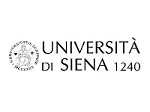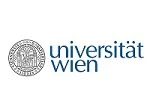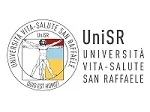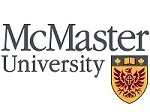
About Germany
Studying in Germany for Indian students comes with a lot of welfare because German universities are internationally ranked and valued for their high-class standards. Their state-of-the-art provision, innumerable financial options, investigation-based courses, prize-winning curriculums, various and spirited student communities, plus a distinctive lifestyle guarantee you get the best studying experience ever. These characteristics have turned them into a pivot for skillful international students who are ready to upgrade their academic and research capacities. Indian students in Germany are the third largest group of international students. According to official statistics, in 2017/18 there were 17,570 Indian students studying in Germany.
Germany is higher schooling heaven. Unlike in any other country, in Germany, you will find many globally ranked universities, countless courses to choose from, worldwide valued degrees that assure high employability to you, and budget living costs.
In addition, Germany has a long and rich history, a spirited and zestful lifestyle mixing the modern and the classics, the urban and the rural which will engage and make you love every second spent here.
Not surprisingly, Germany is graded among the world’s top destinations for international students. According to the newest official data, there are over 357,000 foreign students seeking a university degree in Germany whereas the number is continuously growing.
Every year, thousands of intellectuals coming from all around the world trust their education to German universities.
Why Study in Germany?
Students can get numerous benefits from studying in Germany. Here are some of the most crucial reasons to study in Germany:
- High-quality education: German universities are noted for their demanding curriculum, which is aimed to provide students with a thorough education in their chosen profession. Germany’s education system is also known for its research-based approach, which can offer students useful skills and information.
- International recognition: German degrees are highly valued around the world and are accepted by employers in many countries. As a result, studying in Germany might provide numerous prospects for worldwide professions.
- Cost: Education in Germany is comparatively inexpensive when compared to other countries such as the United States, the United Kingdom, and Australia. Most German colleges are tuition-free, which means students simply have to pay for living expenses.
- Excellent research opportunities: Germany is home to some of the world’s most prestigious research institutes, and many universities engage with industrial partners to conduct cutting-edge research. This gives students fantastic possibilities to participate in research projects, which can be a great method for them to obtain significant experience.
- Cultural exchange: Studying in Germany can provide students with a once-in-a-lifetime opportunity to immerse themselves in a new culture and acquire a new language. This can broaden their perspective and assist them in developing abilities such as adaptability and intercultural competency, both of which are valuable in today’s globalized society.
Overall, studying in Germany can be a great way to get a world-class education, and user experience, and prepare for a successful international career.
Benefits of Studying in Germany
Germany Education System
- In Germany, children often begin formal education at the age of six. There are, however, numerous possibilities for early childhood education, including daycare centers and kindergartens, which offer socialization and educational activities to children aged three to six.
- After completing kindergarten, pupils enter the primary school system (Grundschule) for four years, where they get a broad-based education in areas such as arithmetic, science, and languages. Students progress from primary school to one of three types of secondary schools: Hauptschule, Realschule, or Gymnasium.
- In addition to academic education, Germany has a robust vocational education and training (VET) system that provides training in a variety of vocations and professions. Apprenticeships, which combine on-the-job training with classroom instruction, are the most common kind of VET.
- Higher Education, Germany has a well-regarded higher education system, with public universities offering free tuition. Universities and universities of applied sciences are the two categories of higher education institutions. University programs are often more academic and research-based, whereas university programs are more practical and job-oriented.
Quality of Education
Education is primarily the responsibility of the federal states of Germany. Each state has its education system, although they all follow the same basic framework.
- Germany is well-known for its excellent educational system. The education system in the country is well renowned for its academic rigor, cutting-edge research facilities, and emphasis on practical skills.
- Practical instruction and hands-on experience are highly valued in the German educational system. Many schools provide apprenticeship programs through which students can earn practical skills and work experience in a certain industry while also finishing their academics.
- Furthermore, German universities are highly recognized globally, with many of them ranking among the world’s top universities. Many German universities offer English-language courses, making them accessible to overseas students.
Overall, education in Germany is of high quality, and the country is an appealing destination for students from all over the world seeking a high-quality education in a supportive and stimulating atmosphere.
Career Opportunities
Germany is one of the world’s leading economies, with good professional prospects in a variety of areas. The manufacturing sector drives the country’s economy, but it also has a flourishing service sector and a developing technological industry. Among the most promising professional paths in Germany are:
- Engineering: Germany has a strong engineering background and is home to some of the world’s finest engineering firms. Skilled engineers are in high demand in areas such as automotive, manufacturing, and construction.
- Information Technology: Germany’s technology business is quickly expanding, and skilled IT experts are in high demand. Software developers, data scientists, and cybersecurity specialists are among the most in-demand jobs.
- Healthcare: Germany has one of the best healthcare systems in the world, and healthcare workers, notably doctors, nurses, and caretakers, are in high demand.
- Business and Finance: Germany is home to numerous global enterprises as well as many renowned banks and financial organizations. Professionals with skills in finance, accounting, marketing, and management are in high demand.
- Renewable energy: Germany is a global pioneer in renewable energy, having invested heavily in wind, solar, and hydropower. Professionals with expertise in renewable energy technologies, research, and development are in high demand.
Cultural Exposure
Germany is a country with a diversified population and a rich cultural past. Visitors and inhabitants alike can immerse themselves in and learn about German culture. Here are some methods to immerse yourself in German culture in Germany:
- Museums and Galleries: Germany has a long history of art and culture, and there are numerous museums and galleries throughout the country that celebrate this heritage. The Berlin Museum Island, the Bavarian National Museum in Munich, and the Kunsthalle Hamburg are among the most well-known museums in Germany.
- Festivals and Events: Throughout the year, Germany hosts numerous festivals and events, such as Oktoberfest in Munich, Christmas markets in many cities, and the Berlinale Film Festival. These activities offer an excellent opportunity to immerse oneself in German culture.
- Food: German food is substantial and delicious, with many traditional meals to sample, such as sausages, sauerkraut, and schnitzel. Visitors can sample local delicacies at restaurants and food markets across the country.
- Architecture: From medieval castles to modern skyscrapers, Germany has many wonderful examples of architecture. The Brandenburg Gate in Berlin, the Neuschwanstein Castle in Bavaria, and the Cologne Cathedral are among Germany’s most iconic landmarks.
German is a fascinating language with a rich history and a distinct syntax. Visitors can attend language classes to learn the language and become more immersed in the culture. Overall, Germany provides several chances for cultural exposure and learning, and visitors and residents can immerse themselves in the country’s rich cultural heritage in a variety of ways.
Eligibility and Admission Requirements for Indian Students
Academic Requirements
There are some academic prerequisites that Indian students must meet to study in Germany requirements. Researching the exact prerequisites for your program of interest is vital because these requirements to study in Germany can change depending on the program and institution you are applying to. On the other hand, the following are some common academic criteria for Indian students studying in Germany:
- Recognized Degree: Indian students must possess an internationally recognized degree, such as the All India Senior School Certificate or the Indian School Certificate issued by the Council for the Indian School Certificate Examinations.
- Language Ability: If Indian students want to study German, they must show that they are proficient in the language. A German language competency certificate, such as the TestDaF or DSH, is required by many German universities.
- Academic Performance: Indian students must have a strong academic history. For entrance, the majority of German colleges have a minimum GPA or percentage.
- Standardized Examinations: For study in Germany’s admission process to specific programs, some German institutions may demand the GRE, GMAT, or TOEFL.
Indian students must apply for a student visa to study in Germany. A legitimate offer of admission from an accredited German university, documentation of your ability to sustain yourself financially during your studies, and proof of health insurance are all requirements for obtaining a visa.
English Language Proficiency Requirements
Depending on the institution and program you are applying to, there may be different English language proficiency requirements for studying in Germany. In general, you must pass a recognized English language test to prove your language competency if you choose to study in English. The following are some typical English language competence exams that German universities accept:
- Many German colleges accept TOEFL scores as evidence of English language proficiency. TOEFL stands for Test of English as a Foreign Language. Depending on the school and program, a minimum score may be required, although, for the internet-based test, it normally varies from 80 to 100.
- Many German universities also recognize IELTS (International English Language Testing System) results. Depending on the school and program, a minimum score may be required; nonetheless, this number normally falls between 6.5 and 7.0.
- Some German colleges recognize the Cambridge English: Advanced (CAE) exam results as evidence of English language competency. Depending on the school and program, a different minimum score may be required.
- It is significant to note that various institutions in Germany might give their examinations of language competency, thus it is advised to inquire about the institution’s special criteria.
If you are planning to study German, you will need to demonstrate proficiency in the German language. The best universities in Germany require a German language proficiency certificate such as TestDaF or DSH. The required proficiency level may vary depending on the institution and program.
Application Process and Deadlines
Depending on the institution and program you are applying to, Studying in Germany for Indian Students may be different in the application procedure and deadlines for studying in Germany. However, the following are some typical actions to anticipate while submitting a study abroad application to Germany:
- Examine the many program possibilities: Do some study on the programs that appeal to you and confirm that you are academically qualified for them.
- based institutions: you want to apply to should be chosen based on their location, reputation, and program offers after you have researched various programs.
- Check the deadlines: for applications – Each university will have its dates for applications, so it’s crucial to check the deadlines for the program (s) you’re interested in.
- Documents: The majority of colleges will ask you to provide several documents with your application, including transcripts, proof of language competency, letters of recommendation, and a statement of purpose.
- Visa Application: When you have gathered the necessary documentation, submit your Germany student visa application before the deadline. You might need to use a centralized application system like uni-assist to apply to some universities.
- Await a Response – University admissions decisions in Germany can take weeks or even months to be reviewed and decided. Wait patiently for the university to respond.
- Apply for a Student Visa: To study in Germany international students, will need to do so if they are approved. Apply as soon as you can to give the application time to process.
Visa Requirements and Application Process
You must apply for a student Study visa in Germany, if you are a non-EU student who intends to study in Germany for some time longer than 90 days. The steps for applying for a visa and the requirements for students in Germany are as follows:
- Apply to an accredited German institution: You need admission to an offer from an accredited German institution before you can apply for a student visa.
- Required Documents: A valid passport, evidence of financial support for your studies, a certificate of health insurance, confirmation of admission from the German university, and language proficiency certificates are usually required documents. The list of documents can vary depending on the embassy or consulate.
- Attend the visa interview: You will be asked to present your biometric information, discuss your study goals, and produce the necessary documentation at the visa interview.
- Wait for the German student visa requirements to be processed: The processing time for a study visa in Germany can change, but it usually takes a few weeks to a few months. Make sure you submit your application far enough in advance to allow for processing.
- Get your visa: If your visa application is accepted, you will be issued a student visa that will allow you to travel to Germany and study there for the duration of your program.
Germany’s Top Universities and Ranking for Indian Students
| University | Global Ranking 2022 |
| Technical University of Munich | 41 |
| Ludwig Maximilian University of Munich | 43 |
| Heidelberg University | 45 |
| Humboldt University of Berlin | 122 |
| Free University of Berlin | 131 |
| University of Tübingen | 138 |
| University of Freiburg | 150 |
| Charité – Universitätsmedizin Berlin | 135 |
| University of Göttingen | 186 |
| University of Bonn | 146 |
Campus Life and Facilities
Germany provides students with top-notch amenities and a vibrant campus life. German students may participate in the following facilities and activities:
- Housing: The majority of German universities provide on-campus housing or assist students in locating cost-effective off-campus housing. A variety of accommodation alternatives are available for students, including shared flats, apartments, and dorms.
- Dining: There are cafeterias and restaurants available to students at several German universities. Students have access to a variety of reasonably priced meals, including vegan and vegetarian selections.
- sporting facilities: German universities provide students with a variety of sporting facilities and events, such as fitness centers, swimming pools, and sports clubs. Students can take part in sports like yoga, volleyball, basketball, and soccer.
- Cultural Events – Universities host a variety of cultural events all year long. Germany is noted for its thriving cultural scene. Concerts, exhibits, theatre productions, and movie screenings are all available to students.
- Student Organizations – There are a variety of student organizations available in German universities, including sports teams, debate groups, and volunteer groups. Making friends and meeting new individuals can both be accomplished by joining these organizations.
- Libraries and Study Spaces: Students can access a variety of academic materials, including books, journals, and online databases, in the top-notch libraries and study areas found in German institutions.
Overall, German universities are a great choice for students looking to pursue their academic and personal goals in a supportive and active atmosphere since they provide good facilities and extracurricular opportunities.
Top Courses to Study in Germany for Indian Students
- Engineering (Mechanical Engineering, Electrical Engineering, Computer Science, etc.)
- Business and Management (International Business, Finance, Marketing, etc.)
- Natural Sciences (Biology, Chemistry, Physics, etc.)
- Medicine (Medicine, Dentistry, Veterinary Science, etc.)
- Law (International Law, Business Law, European Law, etc.)
- Humanities and Social Sciences (Psychology, Philosophy, History, Languages, etc.)
- Mathematics and Statistics
- Environmental Sciences
- Architecture and Urban Planning
- Information Technology
- Design (Industrial Design, Graphic Design, etc.)
- Renewable Energy
- Artificial Intelligence and Machine Learning
- Media and Communication Studies
- Public Health
- Agricultural Science and Forestry
Financial Aid and Scholarships for Indian Students to Study in Germany
Types of Financial Aid Available
Germany provides a range of financial aid programs to assist international students in covering their living and tuition costs. The following are some of the financial aid choices offered to German students:
- Scholarships: The German Academic Exchange Service (DAAD), specific universities, and private foundations all provide scholarships for foreign students studying in Germany. These financial aid packages can pay for travel, housing, and tuition charges.
- Student Loans: To pay for their tuition and living costs, international students may also apply for student loans in Germany. Private banks are the lenders of these loans, which need a co-signer who resides in Germany.
- Part-time Employment: While studying in Germany, foreign students are permitted to engage in part-time employment. They are permitted to work up to 240 half days or 120 full days per year. Students who work part-time can save money on living expenses and get experience in the workplace.
- Work-Study Programs: A few institutions in Germany provide work-study opportunities that let students earn money while they are in class. These initiatives give students a consistent source of cash to help with living expenses.
- Financial Assistance from the German Government: International students who are struggling financially can also receive financial assistance from the German government. The Federal Training Assistance Act (B) makes this assistance available.
Scholarships for Indian Students
Following are a few of the well-known scholarships available to Indian students in Germany: Indian students who wish to attain scholarship study in Germany may apply for DAAD scholarships, which are provided by the German Academic Exchange Service (DAAD). The cost of living, travel, and tuition are all covered by these scholarships. A variety of scholarships are available from the DAAD, including study scholarships, research grants, and short-term research grants.
- Scholarships from the Heinrich Böll Foundation: The Heinrich Böll Foundation provides financial aid to foreign students who wish to pursue academic studies in Germany. Students who desire to enroll in any master’s or Ph.D. program are eligible for these study in Germany scholarships.
- Scholarships from the Konrad Adenauer Foundation: are available to international students who desire to study abroad in Germany. Students interested in pursuing a master’s or Ph.D. program in any subject area are eligible to apply for these funds.
- Scholarships from the Friedrich Ebert Foundation: are available to students from throughout the world who desire to study in Germany. Students interested in pursuing a master’s or Ph.D. program in any subject area are eligible to apply for these funds.
Tips for Managing Finances While Studying in Germany
Making the most of your time in Germany requires careful money management because studying abroad may be costly. Following are some suggestions for handling money while studying in Germany:
- Create a budget: List all of your monthly expenses, such as rent, food, transportation, and entertainment. To avoid going over budget, keep track of your spending.
- Look for affordable housing alternatives: For students, the biggest price is typically the rent. To conserve money, look for housing options that are economical, such as shared apartments or student residences.
- Utilize public transit: In Germany, it is effective and reasonably priced. Think about purchasing a semester ticket, which offers discounted unlimited public transportation travel.
- Make your food at home: Eating out can be costly. To save money, think about preparing your meals and purchasing groceries from discount retailers like Aldi and Lidl.
- Benefit from student discounts: Many stores, eateries, and museums in Germany provide discounts for students. Keep your student ID card on you at all times, and whenever possible, request discounts.
- Work part-time: International students are allowed to work part-time while studying in Germany. Consider working part-time to earn some extra money and gain work experience.
- Use online resources: Use online resources such as student forums and Facebook groups to find out about free events and activities in your area.
By following these tips and managing your finances carefully, you can make the most of your time in Germany without breaking the bank.
Living Cost in Italy as an Indian Student
Accommodation Options
There are numerous housing alternatives accessible in Germany for Indian students. Some of the well-liked choices are as follows:
- Student housing: On or close to campus, there are student housing options at many universities. These apartments provide affordable housing options with communal amenities including kitchens and baths.
- Shared apartments:, usually referred to as WGs (Wohngemeinschaften), are common among German students. These shared student residences provide a more independent way of life.
- Homestays: Homestays provide students the chance to live with a German family and get a taste of the community. This may be a suitable choice for students seeking a more immersed learning environment.
- Private flats: are available for rent, albeit they can be pricey. To save money, it is advised to live in an apartment with other students.
Cost of living
- Accommodations: Depending on the city and type of lodging, the cost of lodging can vary. A shared apartment can cost anywhere from €300 to €500 per month on average, while a dorm room for students might run anywhere from €200 to €400.
- Food: Depending on your eating habits and preferences, the price of food can vary. A student should budget between €150 and €250 per month for meals.
- Transit: In Germany, public transit is both inexpensive and effective. Depending on the city, a semester ticket may cost anything from €150 to €300.
- Health insurance: In Germany, all students are required to get health insurance. Depending on the supplier, health insurance can range in price from €80 to €120 per month on average.
- Books and Study Aid: Depending on the course and subject, different books and study aids may cost different amounts. Students should budget between €50 and €100 a month on books and study materials on average.
- Other Costs: Depending on your lifestyle, other costs may vary, including entertainment, phone costs, and personal spending. Students should budget between €100 and €200 per month for miscellaneous expenses, on average.
Food and Dining Options
- Universities in Germany almost all include canteens or messes that provide students with inexpensive meals. These meals typically cost between €2 and €5, and they typically come with a main dish, a side dish, and a beverage.
- Germany is renowned for its bakeries and cafés, which sell delectable pastries, bread, and coffee. These are excellent locations for students to study, unwind, or grab a quick breakfast or snack.
- Restaurants: Different cuisines, including German, Italian, Chinese, Indian, and more, are served at a range of restaurants around Germany. These are fantastic for special events or when students want to reward themselves, but they can be more expensive than other choices.
- Food trucks and stalls selling anything from burgers and fries to falafel and currywurst are a growing part of Germany’s street food scene. These are excellent choices for college students who need a quick and inexpensive dinner on the fly.
- Supermarkets: Fresh vegetables, bread, dairy goods, and other economical food options are available in supermarkets throughout Germany. It is often less expensive for students to prepare meals at home by purchasing the necessary ingredients than to eat out.
Visa Transportation and Travel
- Visa : A student visa must be obtained before travel for foreign students who want to study in Germany for longer than 90 days. Students should make plans in advance because the visa application procedure can take many weeks or even months. Proof of admittance to a German university, evidence of enough money to cover living expenses, proof of health insurance, and a current passport are all prerequisites for obtaining a student visa.
- Transportation : The public transportation network in Germany, which consists of trains, buses, trams, and subways, is good. Students who want to use public transportation in their city or region can buy a semester ticket or a monthly pass. Additionally, several universities provide students with reduced semester tickets. Although they are typically pricey, taxis and ride-sharing options are also available. By train, bus, and airplane, Germany is well connected to other European nations.
Students can readily take weekend or holiday trips to nearby nations. Numerous airlines provide student discounts, and there are also low-cost carriers that provide cheap tickets to numerous European locations. Students can use the same types of public transportation outlined above to travel inside Germany. There are additional options for car rentals, however, students should be aware that costs associated with parking and tolls can make driving in Germany prohibitively expensive.
Employment and Job Opportunities After Graduation
Post-Study Work Visa
International students who want to stay and work in Germany after completing their studies can apply for a post-study work visa, sometimes referred to as a job seeker visa. With a post-study work visa, students can stay in Germany for up to 18 months while looking for jobs in fields connected to their studies. The following criteria must be met to be granted a post-study German student visa process:
- Study Completion: Candidates must have finished their coursework at an accredited German university or other higher learning institution.
- Health Insurance: Students must have current, Germany-specific health insurance to study there.
- Money: Students must have enough money to cover their expenses while looking for work. German knowledge is a requirement for the majority of employment in Germany, thus students should be proficient in the language.
- Job offer: Students may apply for a post-study work visa without having a job offer, but they must find a job within the next 18 months that is associated with their field of study.
- employment contract: Students can apply for a work visa that enables them to work in Germany for the term of their employment contract if they have received a job offer. International students may also be eligible to apply for permanent residency after working in Germany for several years.
Students should always verify the most recent updates and instructions from the German immigration authorities since the post-study work visa criteria and rules may change from time to time.
Job Market in Germany for Indian Students
While there are chances in many sectors, the job market in Germany for Indian students can be rather competitive. The following are some of the most promising fields in Germany for Indian students:
- Engineering: Germany is renowned for having a robust engineering industry, and there is a great need for Indian students who have degrees in disciplines like mechanical engineering, electrical engineering, and computer science.
- Information Technology: Germany has a significant need for IT specialists due to the growing demand for digital transformation. Jobs in this industry are available for Indian students who have degrees in computer science, information technology, or software engineering.
- Healthcare: Due to the high regard that Germany’s healthcare system enjoys, Indian students who have degrees in medicine, nursing, or other healthcare-related professions may find employment chances in hospitals, research facilities, or pharmaceutical firms.
- Business and finance: German businesses also seek out candidates with good analytical and interpersonal abilities. Jobs in this field are available to Indian graduates with degrees in business administration, finance, or economics.
- Research and development: There are many research institutions in Germany, and Indian graduates in STEM subjects (science, technology, engineering, and mathematics) may find employment prospects there.
Tips for Finding Employment After Graduation
- Start Early: It’s crucial to begin your job search as soon as possible, ideally a few months before graduation. You’ll have more time now to conduct employment searches and submit applications.
- Create a Network: Attend career fairs and networking gatherings, and make connections with former students or industry experts. You can do this to increase your professional network and find out about openings in the workforce.
- Customize Application: Make careful to customize your application for each position you apply for. Carefully review the job description before tailoring your application to demonstrate how your abilities and experiences meet the needs of the position.
- Be Receptive to Various opportunities: Be receptive to many employment prospects, including internships and temporary jobs. You may expand your network and earn useful professional experience by doing this.
- Work on your German language abilities because the majority of employment in Germany needs fluency in the language. Take classes, converse with native speakers, and spend as much time as you can in the language.
Working While Studying in Germany
In Germany, part-time employment is permitted for international students. They should be aware of some limitations and guidelines, though.
- Work hours: Students are permitted to work a maximum of 20 hours per week throughout the semester, or 120 full days or 240 half days, in a given year. Students are permitted to work full-time during semester breaks.
- Work authorization: While it is not necessary for students to obtain separate work authorization, they must notify the regional immigration office before beginning any employment.
- Work type: Although students are free to pursue employment in any industry, they should prioritize careers in academia. It’s also crucial to remember that some occupations, including prostitution or self-employment, are prohibited.
- Social Security and taxes: Students must pay social security contributions and pay taxes on their income, but they may be entitled to deductions or breaks.
German language proficiency is a requirement for several jobs, thus students who lack this proficiency may find it difficult to get employment.
Why Take Admission Through Us?
RMC Elite constantly assists students with entrance, scholarship availability, placements, and other services.
Counseling and Mentoring
The experienced staff at RMC Elite advises you on the finest colleges, courses, scholarship opportunities, and more.
College Profiles
We frequently provide thorough information about individual schools and universities, such as academic programs, campus culture, student life, and admission data, on our website. This information can assist students in gaining a better understanding of what a certain school is like and whether it is a suitable fit for them.
College Search Tools
The RMC Elite website includes college search tools that allow students to filter and compare institutions based on factors including location, size, majors, pricing, and entrance requirements. These tools can assist students in narrowing their options and locating colleges that fit their specific requirements.
Test Planning
The team is dedicated to assisting you in preparing for international language exams and clearing screening tests such as TOEFL, IELTS, and others using the most up-to-date practice and curriculums.
The Application Procedure
RMC Elite prioritizes all processes, including profile evaluation, application form completion, admissions locking, Visa preparation, and much more.















